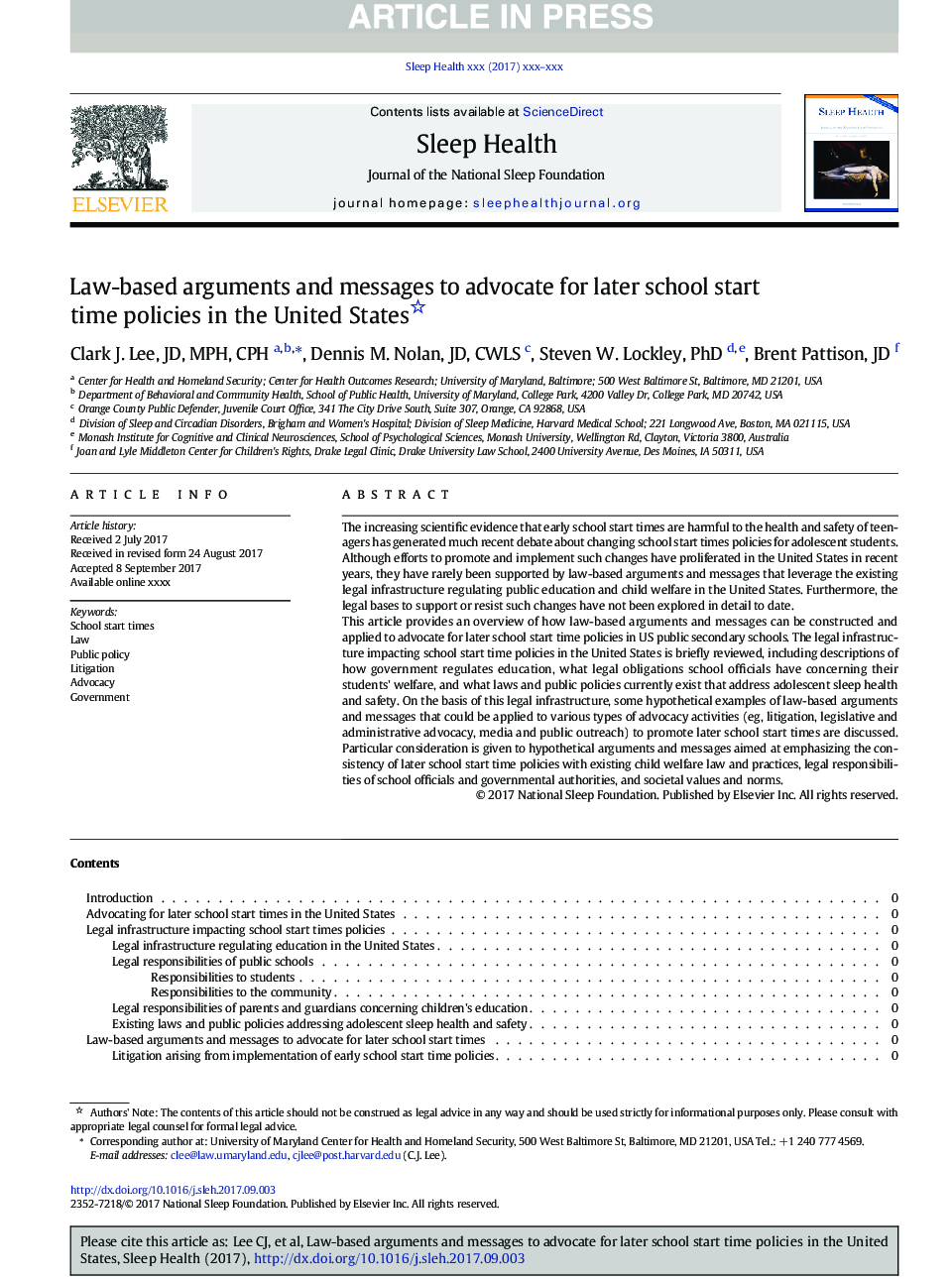| Article ID | Journal | Published Year | Pages | File Type |
|---|---|---|---|---|
| 7271970 | Sleep Health | 2017 | 12 Pages |
Abstract
The increasing scientific evidence that early school start times are harmful to the health and safety of teenagers has generated much recent debate about changing school start times policies for adolescent students. Although efforts to promote and implement such changes have proliferated in the United States in recent years, they have rarely been supported by law-based arguments and messages that leverage the existing legal infrastructure regulating public education and child welfare in the United States. Furthermore, the legal bases to support or resist such changes have not been explored in detail to date. This article provides an overview of how law-based arguments and messages can be constructed and applied to advocate for later school start time policies in US public secondary schools. The legal infrastructure impacting school start time policies in the United States is briefly reviewed, including descriptions of how government regulates education, what legal obligations school officials have concerning their students' welfare, and what laws and public policies currently exist that address adolescent sleep health and safety. On the basis of this legal infrastructure, some hypothetical examples of law-based arguments and messages that could be applied to various types of advocacy activities (eg, litigation, legislative and administrative advocacy, media and public outreach) to promote later school start times are discussed. Particular consideration is given to hypothetical arguments and messages aimed at emphasizing the consistency of later school start time policies with existing child welfare law and practices, legal responsibilities of school officials and governmental authorities, and societal values and norms.
Related Topics
Life Sciences
Neuroscience
Neurology
Authors
Clark J. JD, MPH, CPH, Dennis M. JD, CWLS, Steven W. PhD, Brent JD,
